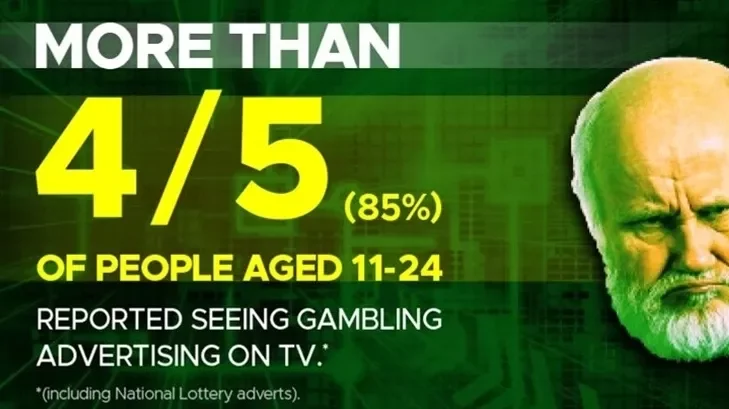The pandemic triggered a nationwide mental health crisis, with anxiety, financial concern and boredom all rising dangerously, creating fertile ground for online gambling companies to exploit.
Words by Tom Fleming
Lockdown
When Boris Johnson announced the first lockdown in March 2020, the nation sat and watched as a historic moment unfolded. In the weeks and months that followed, our daily lives and routines changed dramatically. Anxiety, depression and boredom swept through the country, fuelled by the accelerating pandemic, loneliness and growing financial fears.
Research suggests that during the first lockdown, 56% of the UK adult population felt anxious and 49% felt bored as the pandemic really started to affect our mental health. People were suffering financially too: in April, the first full month of lockdown, use of food banks soared by 89%. Six months after the lockdown was announced, the total number of unemployed people had risen to 1.7 million.
A new gambling landscape
One thing we all had plenty of was time. Stuck at home, we found ourselves spending more and more time online. Ofcom research indicates that adults were spending over four hours a day on the internet during the peak of the first lockdown, with 36% more time spent on social media.
During the first lockdown, all live sports were suspended, and all high-street betting shops were closed. Horse racing and football account for roughly 75% of the UK betting market. Surely no live sport meant no gambling, so no gambling-related harm, right?
Wrong. The lockdown simply pushed gambling further into the online domain. During March, there was an88% rise in virtual sports betting and a 53% rise in people playing online casino games. In April, a YouGov study revealed that 33% of adult respondents had tried at least one new gambling activity during lockdown, with online games such as roulette and slots among the most popular. As a result, in March, the GGY (gross gambling yield – takings minus winnings and operating costs) for virtual sports alone surged by 2,992%, followed by a further 124% rise in April.
Betting on virtual sports and playing online casino-style games are more addictive than betting on sports, largely due to factors like game design, speed of play and 24-7 availability. This is backed up by a Gambling Commission study, which found that 9.2% of people who bet on virtual sports and play online casino games develop an addiction, compared to 2.5% of people who bet on sports online. Nearly half the people playing casino games online are already addicted or at risk.
At a time when the country was going through an unprecedented national crisis, the gambling industry were actively pushing their most addictive and harmful products to an increasingly vulnerable population. By June, the Gordon Moody Association, which provides therapeutic support to people addicted to gambling, reported a 33-fold increase in people seeking help in just three months.
Damaging advertising
This frenzy in online gambling was fuelled by a sharp rise in online advertising. One study recorded 112,818 online gambling and casino advert impressions (the number of times an embedded advert appeared online) between April 5 and May 4 – a 196% increase from the same period in 2019.
By April, there was serious public concern about lockdown gambling, which led to a group of MPs calling for a moratorium (a temporary suspension) of gambling advertising. The Betting and Gaming Council (BGC) agreed to a voluntary ban and suspended TV and radio advertisements for all its members in early May.
When the ban kicked in, ‘safer’ and ‘responsible’ gambling messages filled gambling advertisement slots. However, comprehensive research has determined that these narratives are totally ineffective, undermine the public health approach and even increase stigma and discrimination.
Read more: A Critique of ‘Safer’ and ‘Responsible’ Gambling
Not all gambling companies that operate within the UK are members of the BGC, so the ban was not absolute. More importantly, the ban did not apply to online, social media or direct marketing. The latest research suggests that the UK gambling industry spends up to five times more on online advertising than it does on TV adverts, with a negligible budget for radio advertising. Therefore, the effect of the ban was limited at best: YouTube, which was unaffected by the ban, was the third-most watched channel in the UK in 2020, behind only BBC1 (which doesn’t even broadcast commercial adverts) and ITV.
The voluntary ban then, was little more than lip service on behalf of the BGC, whilst their members increased spending through their most effective marketing channels. However, by agreeing to suspend TV and radio adverts, the BGC were at least acknowledging that these adverts cause harm.
Think about it for a second. Logically, how can gambling adverts that were deemed too dangerous for TV and radio, magically be considered safe for the internet, especially when you consider how much more time we were spending online?
Business as usual
When live football returned on June 17, all games were to be played behind closed doors and broadcast live, including, for the first time in history, Saturday 3pm kick-offs. Needless to say, the return of football was accompanied by a surge in gambling advertising, with a captive TV audience to exploit and a lack of fans in the stadiums amplifying pitch-side advertising.
A Gambling Commission report revealed that the GGY for the online sport gambling sector increased by 115% from May to June, with June’s GGY actually topping the pre-lockdown average. Entain (formerly GVC) is a British sports betting and gambling company that owns multiple brands including Coral, Bwin, Ladbrokes, Sportingbet and PartyPoker. In October, it was reported that Entain’s profit for the year could be as high as £790m – around £50m more than previously forecast – largely thanks to a 26% increase in online profits from July to September.
Read more: Gambling and Football: A Toxic Relationship
Safer gambling?
The gambling industry are keen to peddle their ineffective ‘safer’ and ‘responsible’ gambling narratives, yet there is clear evidence that they have been pushing their most addictive products to a vulnerable population in the midst of a national crisis, which, evidently, is neither safe nor responsible.
Of course, plenty of companies have prospered during the pandemic: daily Amazon deliveries and Zoom calls became a staple for many of us. But online gambling carries an inherent risk and should be treated with appropriate caution in normal times, let alone in the middle of a global pandemic.
Would we feel comfortable if we were being bombarded with online tobacco adverts during a pandemic? Comparatively, advertising tobacco products, which also cause harm and addiction, was banned altogether in 2005.
In a normal year, the gambling industry extracts around 60% of its profits from just 5% of its customers – people who are already suffering gambling harm, or who are at very high risk of doing so. This figure is almost certain to have risen in 2020, with the Gambling Commission reporting that the ‘most engaged’ gamblers were gambling more.
So how did this happen? The answer is simple: the outdated 2005 Gambling Act allows gambling companies to operate largely without regulation, advertising as they please, publicly paying lip service to public health issues but maximising profit by any means behind closed doors.
With the Government’s review of the outdated 2005 Gambling Act, we finally have a chance to change things and prioritise public health over private profit.


